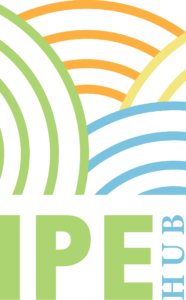Plastic Harvest & Upcycle
Plastic Harvest & Upcycle
- Concept
PHU associates with local entrepreneurs and governments to create local businesses in cities or regions to collect all plastics, process at the local plant, and manufacture public urban equipment as well as construction materials and commercial furniture.
This model immediately benefits each upcycling plant region’s environment and waterways, adds to the collectors’ income, creates manufacturing jobs and new careers, procures towns and cities with locally-made urban equipment, and minimizes manufacturing and transportation GHG emissions.
- Harvest:
The upcycling plant generates a local/regional plastic harvest incentive program to collect and deliver all plastics to the plant. All plastics are shredded and washed, and immediately paid for in cash, according to weight.
- Treatment:
The plants use existing industrial technology and machinery, but include PHU’s proprietary manufacturing innovations.
Shredded/washed/dried plastics are melted/extruded/formed in shaped urban development items, or construction elements. These products can be mixed on demand with other enhancing collected items such as garment fibers (solidity), crushed glass (fire resistance), or coarse sand (non slip tiles, pedestrian crossings).
The upcycling plants do not generate GHG emissions.
- Products:
Weatherproof products to be sold to the towns, cities and real estate projects of each plant’s harvest region.
Urban equipment: sidewalk non-slip tiles, paving, kerbs, shaped curb sections for disabled citizens’ accessibility, bollards, street surfacing, fencing, railings, traffic dividers, construction zones protection, etc.
Road and street signage: movable road work traffic barriers, posts, frames, panels.
Furniture: public benches, handrails, playgrounds, stadium equipment, lockers.
Construction: roof weatherproofing panels, tiles, wall-siding, foundation waterproofing panels, building entrances, surfacing, weather-stripping, etc.
- Sales:
- Agreements with the region’s towns to procure urban equipment, negotiated as part of the plastic cleanup and the development of the plant. No budget expansion needed, as these products will replace a portion of the equipment usually made of wood, concrete, or metals.
- Negotiated agreements with industrial plants discarding plastics to be collected and upcycled for industrial equipment such as pallets, surfacing, insulation, etc.
- Competitive sales to private residential and commercial building development.
- Competitive sales to local industrial and manufacturing plants for their heavy-duty furniture and landscaping.
- Structure
25 year Public-Private Partnerships with the region’s towns and cities
50% PHU (seed-incubator-business developer)-50% local investors/operators
- Financials
- Capital investments:
- City land at waste management facilities: 25 year lease at no charge.
- City building: 25 year lease at no charge, or assemble removable structure.
- Machinery: shredders, washers, extruders, compactors, panel laminating machines. Most equipment to be financed through international organizations. Depending on the country and the intensity of the environmental crisis, a blend of international aid may be available.
Capital investment per plant: USD 100,000 to 2M depending on capacity.
- Expense funding: investment capital from the local plant investors/operators.
- Financials: use of blockchain technology for supervision by authorized users:
- Remote central bookkeeping/accounting
- High-level management reports, analysis, and decision-making correspondence.
- Commitments
- Harvest
Purchase price: USD 0.15/kg (average 2020 price for dry plastics). A definitive price will be established per region. The price paid to the harvesters will be competitive with that of other recyclables such as aluminum and cardboard to insure maximum collection rate.
- Education, new careers:
Particular attention will be invested in educating and training machine operators, as well as developing skills such as creative urban furniture design, manufacturing management, procurement analysis and sales, supply chain and production management. Collaboration with local technical schools and universities to foster new thinking and methods to develop sustainable manufacturing. Education courses to be developed to identify and include all environmental externalities when creating new business ventures, especially in manufacturing and distribution.
- Expansion:
Waterways have been traditionally used to discard trash, and it is essential to harvest all plastics as upstream as possible. In rural and mountain areas, PHU plants will dispatch mobile units consisting of trailers outfitted with a shredder/washer, a compactor, and a container to make planned periodic visits to villages, and transport the bales of plastics to the closest processing plant.
Additionally, PHU will study strategic locations for plastic collection filters to be installed in river bends, as well as developing new concepts such as “bubble barriers” that bring plastics to the water’s surface for collection, before they reach the estuaries. The plastic to be collected in this manner will benefit the local harvesters, who will maintain the river collection equipment.
- Conclusion:
In the new Sustainable/Circular Economy, ventures foster local entrepreneurship and strengthen local economies with multiple goals: ecology, circular use product design, social advancement, gender equity, wildlife protection, and no GHG emission.
Plastic Harvest & Upcycle incentivizes stakeholders in the plastic pollution crisis by incubating sustainable, regional public-private commercial partnerships that collect all types of plastic and locally upcycle into new products needed in local urban development.
Expertise, International Investments
Plastic Harvest & Upcycle is a project developed by Indo-Pacific Green Growth ( www.IndoPacificEnvironmentalGroup.com/#ipgg ), assembling a wide professional network in a venture-building force to rapidly attain organizational maturity and business profitability.
Many local, national and international organizations are being approached, representing a cross-section of interests ranging from ocean cleanup, plastic removal and recycling, carbon removal and sequestration, social and gender advancement, animal protection, local economic development, education, and career development.
For inquiries, please contact Philip Lajaunie at PL@IndoPacificEnvironmentalGroup.com



